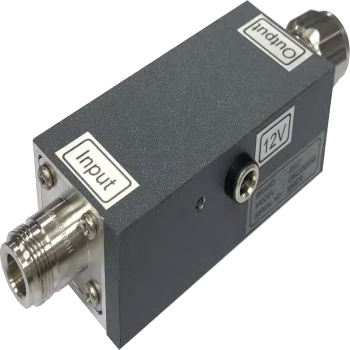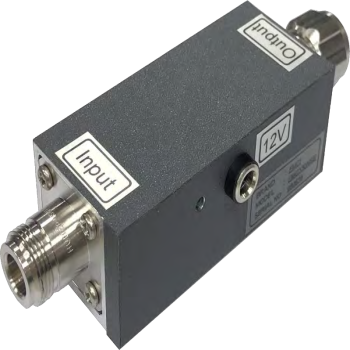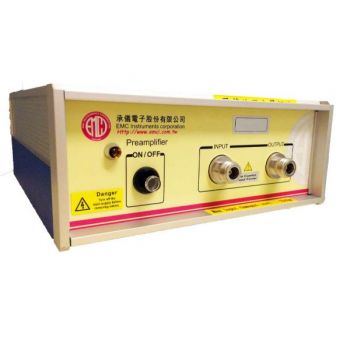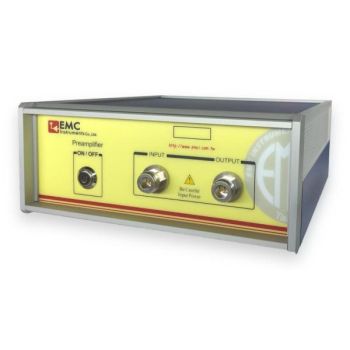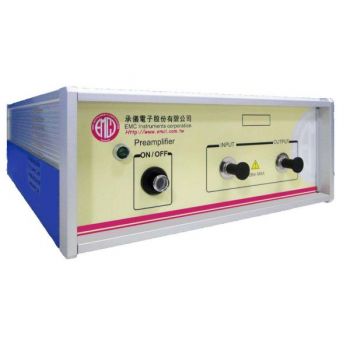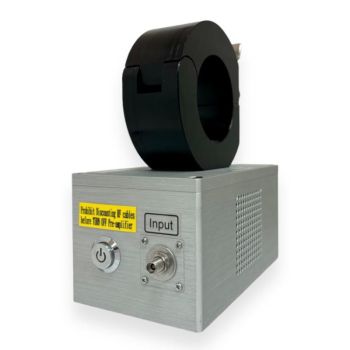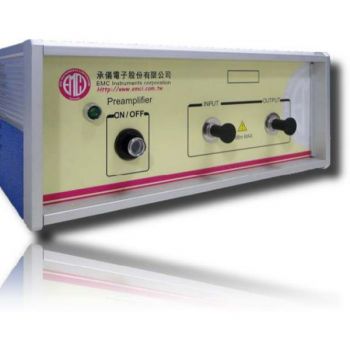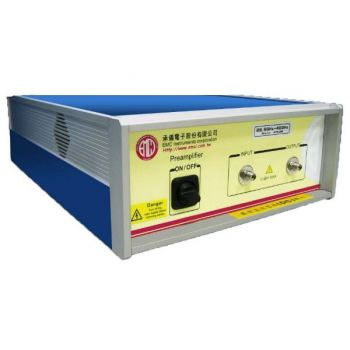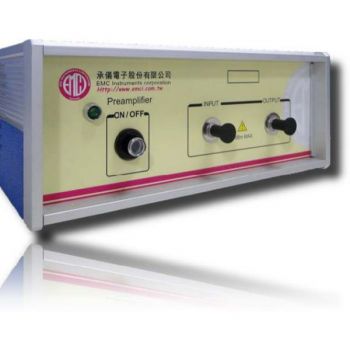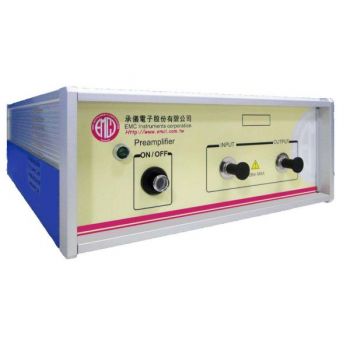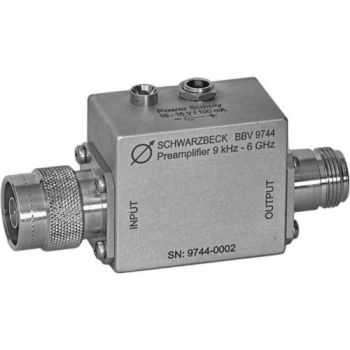
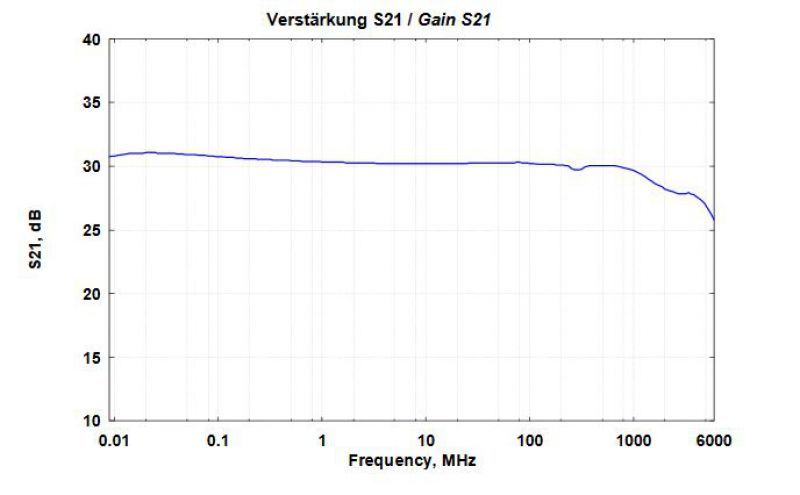
BBV 9744, 9 kHz - 6 GHz, 28dB Gain, Broadband Preamplifier
- Low Noise Amplifier (preamp)
- 9 kHz - 6 GHz
- Typical gain: 30 dB
- Noise Figure: 2.5 dB
BBV 9744, 9 kHz - 6 GHz, 28dB Gain, Broadband PreamplifierThe BBV 9744 is a general-purpose broadband preamplifier with high gain and low internal noise.
A power supply is required. PS 120/12 can be used.
The BBV 9744 is a general-purpose broadband preamplifier with high gain and low internal noise. Because of the high gain and the good noise figure, the system noise is nearly independent of the other components including cable and receiver. These features make the BBV 9744 very useful for the measurement of very low limits. In this case, it will be connected directly to the antenna. The amplifier has 2 stages. The first stage uses an ESD – protected MMIC to prevent defects by unintentional electrostatic discharge. Nevertheless, preamplifiers are generally ESD-sensitive devices, therefore it is very important to discharge coaxial cables before being connected. This is an essential precaution to protect the extremely small semiconductor structures operating in the microwave frequency range. It must be noted that the use of preamplifiers is generally not recommended for the measurement of impulsive signals. Such broadband noise is typical for many EMC measurements. This means that any broad-band preamplifier is not suitable for EMC measurement of a broadband pulse spectrum. The BBV 9744 has an aluminum enclosure and uses N-Type flange connectors. The power supply is very simple because of the built-in voltage regulator. A standard wall plug supply with +12 V DC can be used. An internal protection circuit slows down the rising and falling edge of the power supply voltage to prevent internal components and the receiver from being damaged by voltage spikes. 12-V-auxiliary supplies from receivers and analyzers or batteries are also suitable if they can provide a cont. the current of 0.12 A. |



